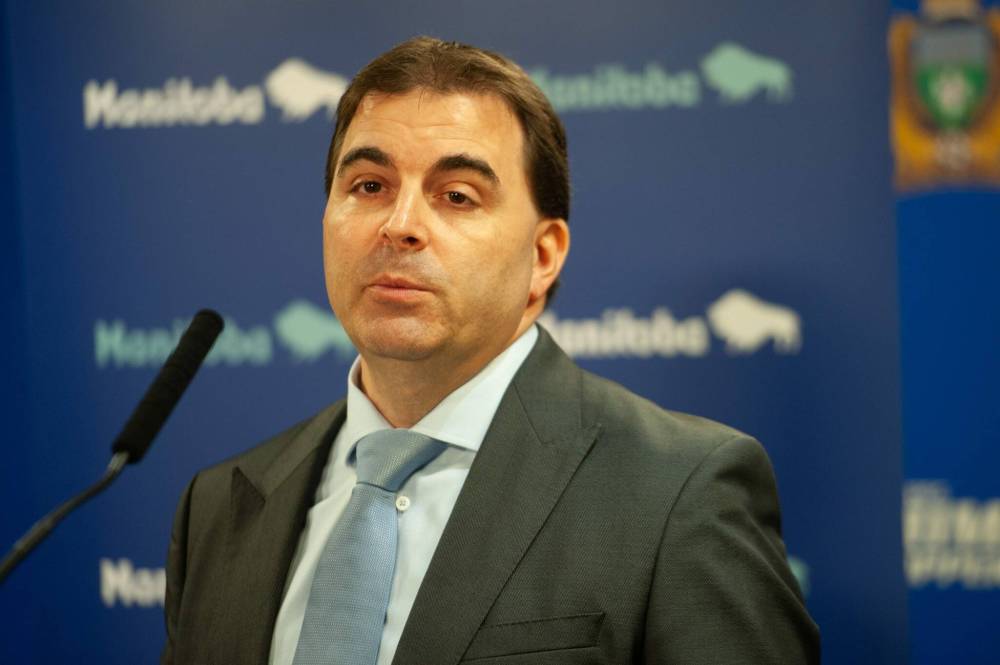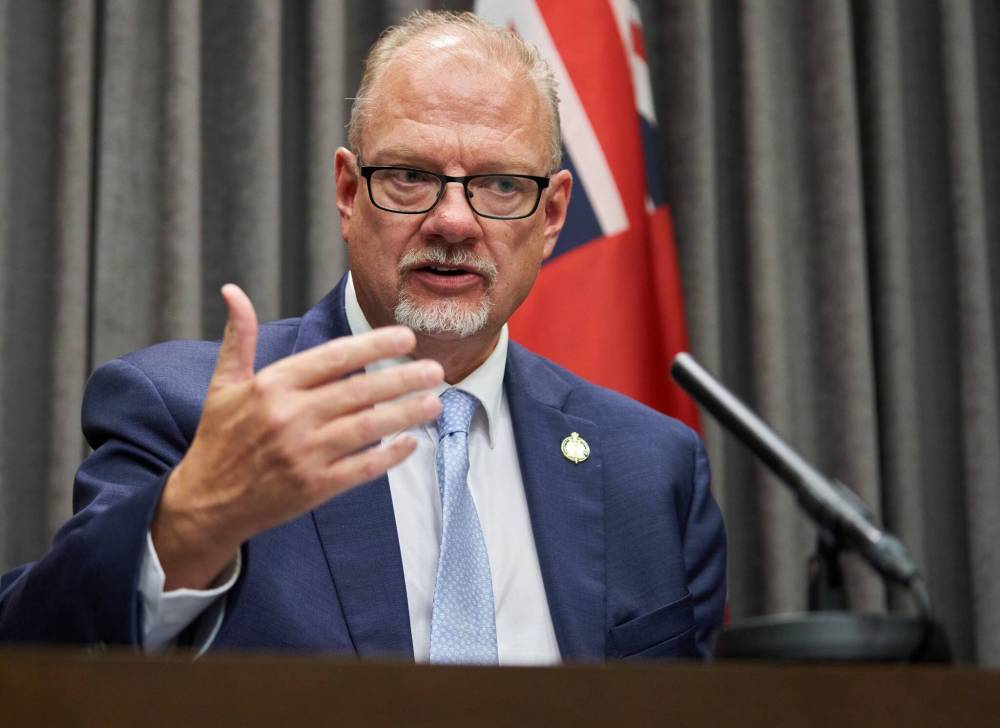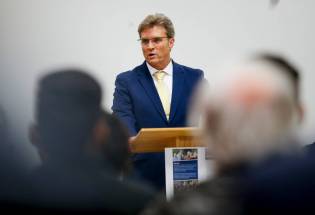‘Initial plan was not realistic’: consultant issues delay MPI shift online, CEO says
Read this article for free:
or
Already have an account? Log in here »
To continue reading, please subscribe:
Monthly Digital Subscription
$0 for the first 4 weeks*
- Enjoy unlimited reading on winnipegfreepress.com
- Read the E-Edition, our digital replica newspaper
- Access News Break, our award-winning app
- Play interactive puzzles
*No charge for 4 weeks then price increases to the regular rate of $19.00 plus GST every four weeks. Offer available to new and qualified returning subscribers only. Cancel any time.
Monthly Digital Subscription
$4.75/week*
- Enjoy unlimited reading on winnipegfreepress.com
- Read the E-Edition, our digital replica newspaper
- Access News Break, our award-winning app
- Play interactive puzzles
*Billed as $19 plus GST every four weeks. Cancel any time.
To continue reading, please subscribe:
Add Free Press access to your Brandon Sun subscription for only an additional
$1 for the first 4 weeks*
*Your next subscription payment will increase by $1.00 and you will be charged $16.99 plus GST for four weeks. After four weeks, your payment will increase to $23.99 plus GST every four weeks.
Read unlimited articles for free today:
or
Already have an account? Log in here »
Hey there, time traveller!
This article was published 05/12/2022 (1105 days ago), so information in it may no longer be current.
Manitoba Public Insurance is shifting responsibility for delays in providing Autopac services online and massive cost overruns to upgrade its technology systems, pointing to incomplete advice from consultants hired to help with the rollout.
On Monday, MPI chief executive officer Eric Herbelin fielded questions about Project Nova — a multiyear plan to move auto insurance services online — during a government committee meeting on the Crown corporation’s 2021-22 annual report.
The project was initially quoted at $86 million and expected to take three years to complete, with online consumer Autopac services anticipated to launch in April 2023.
However, Herbelin told the committee the price is now closer to $290 million, with completion expected in the 2025-26 fiscal year.
Herbelin said external consultants who prepared the initial business case left out a number of expenses and overestimated the Crown corporation’s ability to deliver changes necessary to move its services online under the proposed timeline.
ETHAN CAIRNS / WINNIPEG FREE PRESS FILES Eric Herbelin, president and CEO, Manitoba Public Insurance.
Additionally, the consultants did not capture the entirety of the project and “probably missed a few points or were not asked the right questions to (provide) the full scope,” Herbelin said.
“MPI never had the chance to tackle such (a) large project and was not ready to deliver at the pace needed,” the CEO said. “The initial plan was not realistic and not reasonable for a number of reasons.”
The Crown corporation realized early on it could not execute the rollout as planned, sparking internal and external reviews that led to the extended timeline and additional costs, he added.
Implementation of the plan began two years ago.
The revised $290-million price tag is in the ballpark of similar projects carried out at comparable corporations, Herbelin told committee members.
“MPI never had the chance to tackle such (a) large project and was not ready to deliver at the pace needed. The initial plan was not realistic and not reasonable for a number of reasons.”–Eric Herbelin, MPI chief executive officer
MPI is nearly ready to release the initial phases of Project Nova, which will focus primarily on commercial customers, with changes anticipated to be complete by August, he said.
However, average Autopac customers will not see services such as driver’s licence renewals, vehicle registrations and claims moved online in the near future.
MPI must first undertake a discovery process to determine how best to roll out the services, giving consideration to security risks, Herbelin said.
That process will begin in January. He declined to provide a final release date, saying there are still many unknowns going forward.
“Half of the program is well underway and we have a very solid understanding of the release dates, the costs, and what is happening after that,” Herbelin said.
DAVID LIPNOWSKI / THE CANADIAN PRESS FILES Tory minister responsible for MPI, Kelvin Goertzen.
Tory MLA Kelvin Goertzen, also minister responsible for MPI, said the significant variance between projected and actual costs is concerning but not necessarily surprising.
“When it comes to technology projects that are this big, almost always when they get into it… we find out that it’s more than one might have thought at the beginning,” Goertzen told the Free Press after the committee meeting.
“I have frustration as a lay person that that always seems to happen, but I think MPI should do a review of what… caused the scope to grow so much.”
MPI is also exploring the impact of moving to a primary driver model, after its appeal of a Public Utilities Board order was denied in October.
During the 2022 general rate application hearings, the regulator ordered MPI to develop a five-year plan to implement a primary driver model, if it were approved by the PUB.
“When it comes to technology projects that are this big, almost always when they get into it… we find out that it’s more than one might have thought at the beginning.”–Tory MLA Kelvin Goertzen
Currently, MPI uses a registered owner model for insurance rate setting, which assigns risk based on the registered owner of the vehicle, rather than the driving experience of the primary driver.
“We will bring our findings, or whatever findings we have, in that time to the next application and hearing process,” Herbelin said, noting the costs of transitioning to a different model are unknown at this time.
The Crown auto insurer is also consulting with First Nations communities to establish an injury prevention program focused on local needs, the CEO said.
“There are higher incidents of injuries in those communities,” he said. “We understand as well that the best outcomes are likely to come from the collaboration standpoint with the First Nations.”
danielle.dasilva@freepress.mb.ca

Our newsroom depends on a growing audience of readers to power our journalism. If you are not a paid reader, please consider becoming a subscriber.
Our newsroom depends on its audience of readers to power our journalism. Thank you for your support.













